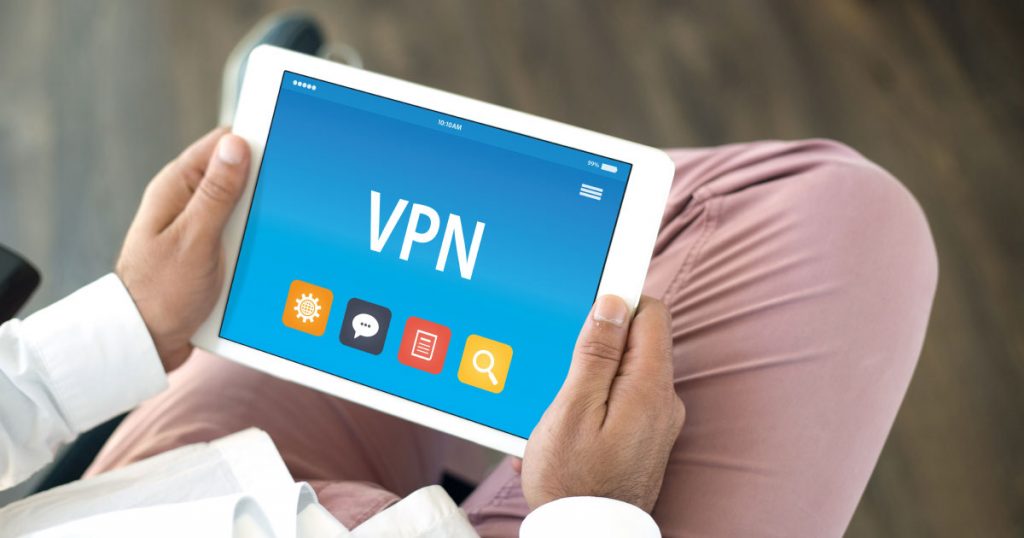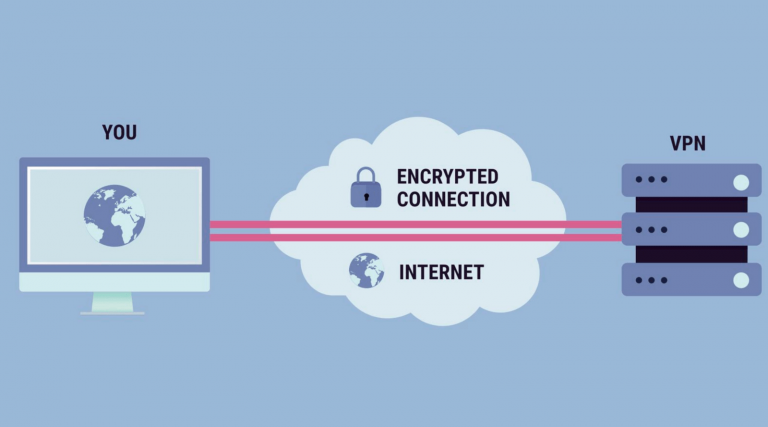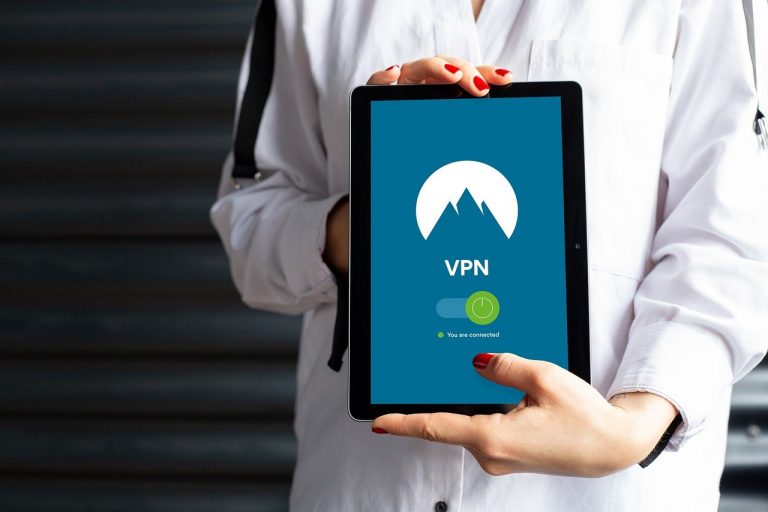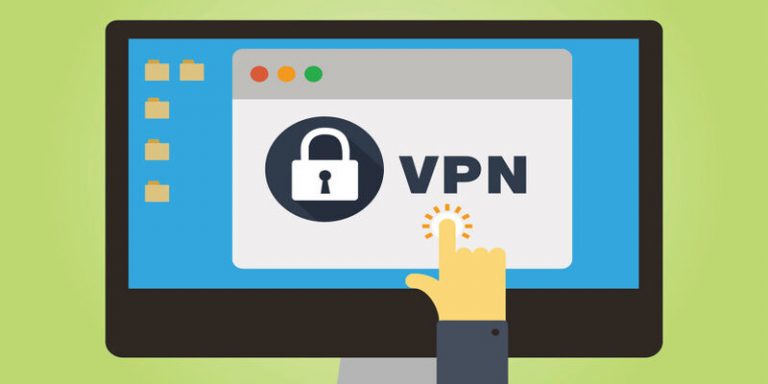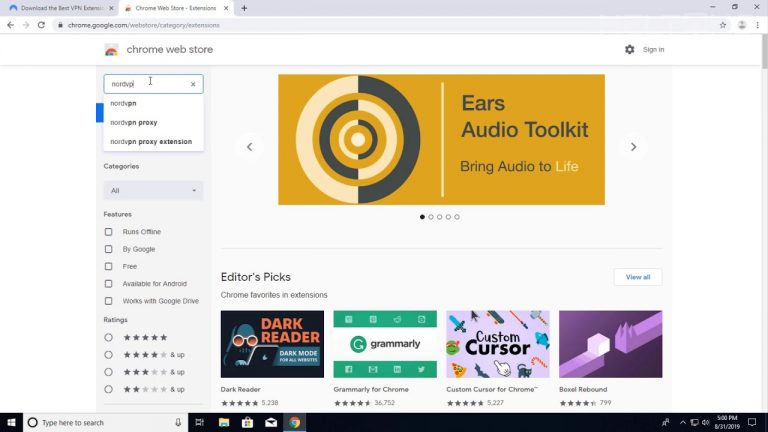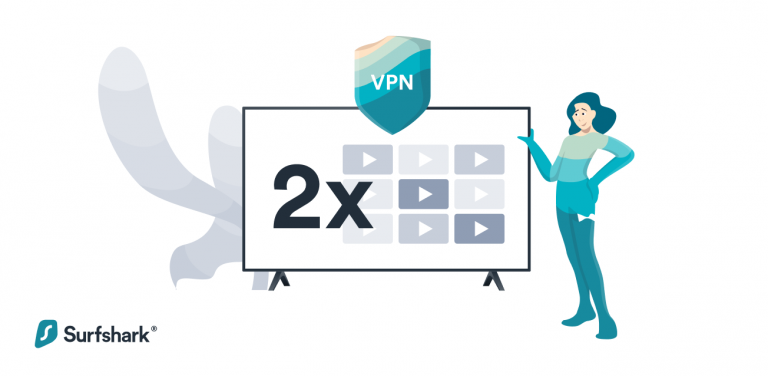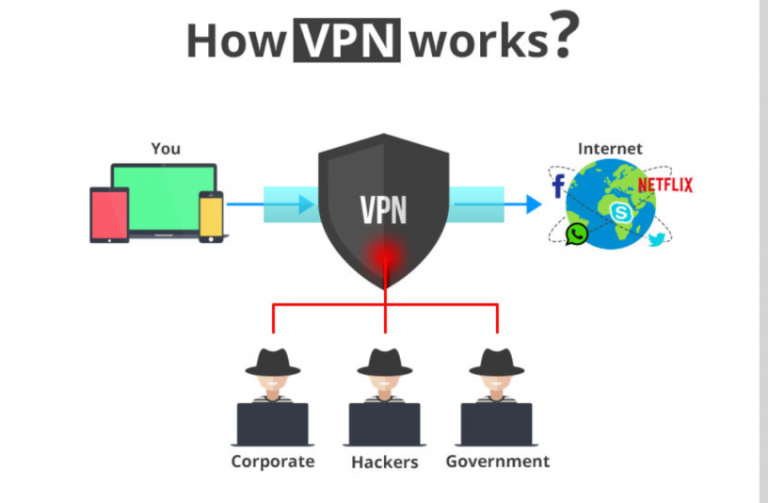The Dark Side of the VPN Industry – Should All VPNs Be Trusted?
For VPN users, they are their saviors from all kinds of online threats, but are they all committed to protecting your privacy or playing against the rules of the game? Let me look through all the dubious VPN services that alerted me and forced me to write this post in the dark side of the VPN industry!
Prologue:
Technology has always been designed to be a sideline to humanity, helping it grow and realize its potential even more. But what most people often fail to realize is that technology is the most important double-edged sword that can do us as much harm and destruction as it can make our lives better.
Einstein and his thought experiments were never meant to lead us to the development of the atomic bomb, the most destructive physical weapon ever invented, but here we are in the world today, considering how we can end this threat. But such realizations struck us after we used them in the two Japanese cities that still bear the scars of the fireballs that fell from the sky.
And despite similar lessons in history, we still do not we have been able to spot and correct how we can be more proactive in controlling the flow of destruction than the tools we have created for us.
But no matter how powerful the nuclear bombs are and how spectacularly terrifying it is the thought of an explosive remnant, the damage that these weapons of mass destruction can cause, remains limited to a certain geographical limit. But man is a funny creature, because he never ceases to wonder how he can continue to create things that may seem useful and benign, but they are used to harm the very people of some of the most criminal minds among us. .
The Internet, when you look at it first, seems like a perfect dream. A place where you can access everything. From talking to friends about finding out who won the Uganda election and checking Apple’s share price on Wall Street to buying the latest watch from Amazon, the Internet is the ultimate power in the hands of the common man.
But what most people do, I don’t realize when on the Internet, is that their seemingly innocuous activities can put them in serious trouble if they fail to be protected.
VPN and their role in consumer protection:
Your online activities are a gold mine for people with enough interest if they can access it.
Hackers can pounce on some pretty good moolah just by sneaking into your data packets and knowing about your sensitive financial information such as credit card information, PayPal account credentials, etc ..
Even the government is not far behind, as there are many cases of large-scale monitoring programs undertaken by them to collect data on citizens in order to control them.
The only thing that stands between our privacy on the Internet and these data usurpers is VPN.
VPN or virtual private network is a tool whose main purpose is to protect us on the public Internet by extending a secure cloud over our Internet connections through a combination of security technologies such as military encryption and privacy ethics such as an explicit zero-registration policy.
By activating a VPN through your Internet connection, you can hide online identity and make sure that your data and internet activities do not interfere, but is it really so?
Not quite that, as with a lot of experience in connecting with the VPN industry over the last few years, I can say with authority that this industry definitely has a dark side that most users don’t know about.
And in this defining blog, I seek to reveal this invisible aspect of the VPN industry to a wider audience so that they can understand the extent to which this industry is permeated by criminals and other actors in the workplace. and the provision of services in the industry, serve some intriguingly malicious purposes.
VPNs of HoneyTrap:
VPN networks are in its industry’s prestige, extremely reliable for consumers. It’s close to you to see some security guards on the side walk of your house. You shouldn’t suspect them of being dangerous, but they feel more secure in their presence.
But can’t a criminal be hiding among them whose goal is not to protect but to hurt with this gun? Definitely possible, but most of us do, I don’t think so, and that’s the biggest defense these HoneyTrap VPNs have to work freely in the industry.
But what exactly is a HoneyTrap VPN? I came up with this name after seeing a movie of the same name in 2014. While the film itself was filled with ease, but it performed a very important but often ignored concept of our time, which entices people to look harmless, even useful things, only to deceive them later.
VPN the HoneyTrap network works on a similar premise. Users often visit VPNs to gain more privacy through their Internet connections or to achieve other goals such as unblocking geo-restricted websites and support for secure Torrenting. To the untrained eye, many of the VPN sites out there can feel like they are providing a service like no other.
Filled with marketing quirky language, floating pricing plans, great designs and logos, these VPN websites look like your average VPN providers out there to provide you with safer and more secure internet access. But they are, in fact, honey traps, as they lure people under the pretext of providing a VPN service, but usually perform some unethical activities that can harm the user greatly.
Unethical activities include data mining by monitoring people’s activities online, implanting tracking codes in their devices, using your device as a node in a larger bitcoin mining system, etc.
In fact, I was completely unaware of the scale on this issue until I downloaded a seemingly harmless Android VPN app from a service known as EasyVPN. I’m a reviewer, so I have to test things before I can write about it. EasyVPN was on my to-do list because I believed I hadn’t given Android VPN apps a fair share of feedback, so this test began.
This activity , which I indulge in so often with such VPN services, costs me so bad that I could not use my Samsung S5 for 2 minutes straight. Disturbing pop-ups from mostly foreign porn sites that keep popping up, and if I run too fast with my cell phone, I’ll leave my device hanging.
Then it seemed to me that this application is infected and before doing any of my own research, I went online and checked to see if the VPN application actually does all this or some other application. But my suspicions came true when I saw a study that rated this app as the second most malicious VPN app in the Play Store.
But it’s not uncommon for one or two VPN providers to do this, rather it’s the opposite these days, as most VPN providers are reported to be HoneyTraps.
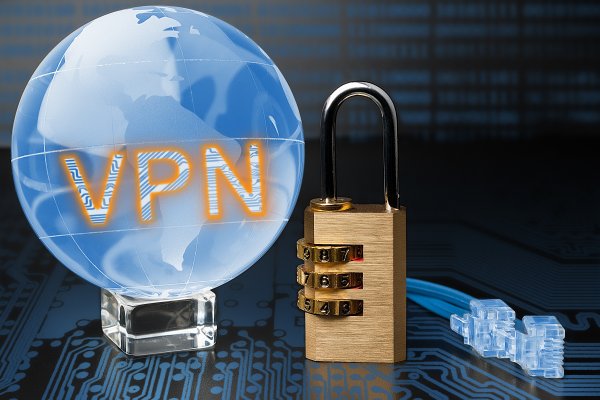
The size of the problem:
Facebook. Does that name sound familiar? And why it should be so. After all, this service has over 2 billion users worldwide, which means that if Facebook were a country, it would be the world’s most populous country of at least a billion people.
And everyone knows that Facebook is a large-scale service and if it does something, it doesn’t matter. From the acquisition of Whatsapp to the Cambridge Analytica scandal, Facebook has been leading the rise in the importance of data in serving all kinds of purposes.
But do many people know that Facebook has its own VPN? That’s right. Named Onavo, this VPN service has been owned and operated by Facebook since its acquisition in 2013. However, Facebook has not been as successful in its attempt to extract even more complex user data through this VPN service, and that’s mainly because of the vigilance of privacy experts and reputable VPN users, who don’t let Facebook continue with its hidden activities with Onavo.
The service has since become known for this many associations and Facebook stopped working on it. No updates will even appear in the future. However, the website is still alive and well. So, Facebook has not redirected this way to my data, but due to the whole fiasco, it does not do it further “Really Facebook Scale”.
But this brings us back to a very serious realization and is that if Facebook, which thrives and survives by selling consumer data, is so interested in the VPN arena, how many other similar corporate houses operate VPN services, is someone’I guess.
Facebook has nothing to do with the data privacy industry, but even if it had an interest in the arena, it could use its massive platform to launch Onavo and make it the best VPN service to compete with. with the likes of big industry wigs like ExpressVPN and NordVPN. a remarkable explanation for why it started working in such an unrelated domain. We can understand Facebook’s Acquisition of social media services like Instagram and Whatsapp and even AI and virtual reality incubators, even though they work with VPN without even being reported, raised a lot of eyebrows, especially mine.
Onavo’s privacy policy is where the real problem lies
“We use the information we receive to work and improve the Services, to develop new products and services, to analyze the use of our applications and other applications of your device to support advertising and related activities and for other purposes. ”
Explicitly stated“ Zero Registration Policy ”is the Holy Grail of the VPN industry. But the wind seems to be blowing in the wrong direction at Onavo.
His privacy policy, which should actually be entitled “Using Data and Permission” The policy states that he uses information from his service to “Improving Services” ”And“ Development of new products and services ”. And because Onavo is owned by Facebook, it means that Onavo is the perfect embodiment of a “HoneyTrap” in which VPN is used as a facade to power Facebook’s data retrieval purposes.
But Facebook is not the only large corporate company offering a VPN service right now. Other big companies also offer their VPNs, but these services remain shady so far, so don’t say how they will protect the user. There is no mention of things like the number of servers, the degree of encryption, etc. and the only thing they seem to be promoting here is their VPN service.
VPNHub, protecting your privacy or directing you to conversion?
PornHub is a world-famous porn site, perhaps one of the largest in the world, and offers a free as well as a premium version of its service.
At first glance, there seems to be nothing wrong with the service. VPNHub looks like your usual old VPN service, which has free and premium versions, similar to other similar VPN services, e.g. Zenmate. But if you take a closer look, things start to look a bit shady.
MindGeek, one of the world’s largest porn site owners, also owns Pornhub.
This company supported the Digital Economy Act 2017. from the British government, which includes the stipulation that consumers will have to present official documents, such as their government ID cards, in order to enter ports such as Pornhub.
He even developed a tool called “AgeID” which allows users to go through this age verification process seamlessly, but only after paying a small fee.
However, if you want to work around this limitation, you can obviously do so. with VPN. It’s an easy process. Connect to a server outside the UK and enjoy access to adult websites in the UK.
And so it may be natural for VPNHub to be introduced by PornHub in an attempt to ensure that their users come to them for everything. From age verification to bypassing these systems, many age verification systems are now powered by MindGeek.
VPNHub is free and plays perfectly for adult sites that own MindGeek, as most are free. However, the free version of this VPN will have nasty ads that will only disappear if you buy the premium version of this VPN.
Okay, this all seems pretty confusing why MindGeek will first support an age verification bill will this continue and create a tool that supports this bill and then again, create a VPN to bypass not only this bill but also the AgeID tool?
This is where the conflict of interest lies in this VPN, the perfect HoneyTrap, is a way to entice users to their VPN service by creating a funnel that makes conversions easier.
VPNs are designed to protect online users from existing threats in the digital domain, not first create a threat yourself and then offer a VPN as a solution to it. In my opinion, this is similar to creating a fire first, and then selling fireproof suits right where the fire is raging.
to make consumers realize that growing Internet censorship and control is driving more and more people to turn to VPN use, making it a very lucrative industry that these large corporations are happily obligated to take a large share of.
The trap of free services:
Maintaining and launching a VPN is quite a capital-intensive task, and that’s because VPNs are not ordinary technology tools. They are built on an extremely complex infrastructure, which includes an integrated network of servers around the world, encryption and decryption facilities, protocol maintenance and others, all of which are quite expensive to maintain and operate, which is why most providers of the best VPNs offer their services for different pricing plans.
So if a VPN provider offers their services for free, then definitely making money from somewhere is probably the most dangerous thing that consumers should always do. to think before subscribing to such a service.
Users are quite misled and deceived by these dubious free VPN providers. After all, who doesn’t like Free Service. And these dubious providers are playing on this particular consumer psyche.
These free VPN services have to make money from somewhere, so if it’s not by offering their services for a price, then what are the opportunities that are left for them?
Many, but they are all incredibly problematic. These methods include inserting tracking codes into user devices, keeping user logs and then selling them to advertisers, converting user devices into nodes to maintain a larger botnet network, among others.
In my guides, I always discourage people from subscribing to these dubious free VPNs because, first, they don’t even perform or provide 10% of the functionality and grit to their paid counterparts.
Free VPNs they can’t bypass more complex geographically limited sites like Netflix US, nor provide any fast speeds to talk about some of their shortcomings.
There is a very old saying “If you get something for free, you are the product” and nowhere is this more evident than in the world of free VPN services.
Google Play – The home of dubious free VPN applications:
For any scam or dubious business to succeed, it needs camouflage first, and second, it needs a place or platform to he spread his tentacles far and wide. And for free VPN applications, there is no better place to support than the Google Play Store.
The Android operating system is the most used operating system in smartphones worldwide, so it is natural that the popularity of the Google Play Store , which is Android’s official app store, is incredibly widespread. But popularity or reach never guarantee that the platform will be safe and secure for users.
The Google Play Store is known for hosting all sorts of dubious, malicious applications. Its system for uploading and hosting applications is quite weak compared to its stricter competitor, ie. iTunes Store the official iOS app store.
Just start searching for “VPNs” in the Google Play Store and you’ll come across thousands of VPN apps for Android, most of which have no origins other than running as Android apps .
Here is a screenshot of a search I conducted in the app store for the keyword “ExpressVPN”
From scandalous names that have nothing to do with VPN’s functions like “Yoga VPN” and “Mango VPN” to VPN networks with icons that show people in intimate scenes, there is no shortage of Android applications for free VPN networks if you go looking for them.
But let me dig a little deeper and allow me to guide you through things that you and other unsuspecting users may miss in these seemingly inconspicuous free Android VPN apps.
If If you search the Google App Store for Android VPN applications, there is a good chance you will come across a service called “GO VPN Proxy Master-Free · Unlimited”. It has accumulated more than half a million downloads and has an impressive rating of 4.5
And all it takes to launch this app is just to download and install, no user verification, no passwords, no account setup, nothing. It’s free and easy, but it’s safe.
Not exactly.
The app store has some detailed details about the origins of this app and the company behind it that users can miss quite easily, after all, who reads the privacy policy or in-depth to find out who are the developers behind this app you? Right?
Well, I’m not one of those and as a freak in my personal life, I usually go deep into the depths and try to figure out exactly what the motive is for such an amazing, hassle-free service.
If you look at its developers, it says it was developed by the VPNMaster team, which sounds pretty authentic. But first, let’s delve into the type of user permissions required to run your Android device.
First, it requires permission to not only read the contents of your device’s storage, but also have the power to “change or delete” the contents of it. If it’s not so intrusive, then I don’t, I don’t know what is. If you’re still not clear, this means that the app can delete everything from your device’s storage that you like or even disable it from functioning fully. Whether it’s her photo files or your video files, this app can delete and modify them at will.
In addition, it also requires permission to “Connect and disconnect Wi “Fi”, which means that even if you do, I don’t want your device to be online for a while, this app can turn it on against your will whenever you want.
The app will also have access to your “sensitive log data” which in layman’s terms means that it can track your activities online. But isn’t that exactly what a VPN is to keep you from tracking your activities online? Not for this VPN. Users don’t usually go through these permissions quite often and often reject them for consent without even realizing the extent to which they are endangering their own privacy and security of mobile data.
But why is the app doing this? Well, the answer is at the bottom of this Google Play app. Scroll to the privacy policy and hover over it and you will see that the privacy policy of this application redirects you to a site known as “TalkingData”.
No was’t this application developed by someone named VPNMaster? No, it’s just a fabrication for the app page to make this app look and feel more authentic than it actually is.
I don’t know about those of you, TalkingData is a Chinese data mining company. Are you surprised? Don ‘t, because most Android apps on Google Play share such a dubious origin, and I just scratched the surface here to see exactly how dangerous these so – called “Free VPN” applications can be to your user’s privacy.
Now, back to the privacy policy, which is one of the worst privacy policies I’ve ever encountered specifically for VPNs, he mentions that there are “Exceptions” to how it may use your data and yes, it contains exceptions for cases such as “Directly related to national security and national defense security” and to “Directly related to criminal investigation, prosecution, trial and enforcement of court decisions. ”
Well, after all, this is a Chinese company that operates in a country where the government is the supreme body in all things. China is known for its strict control and censorship of the Internet and its users, and if a company located there involved in data retrieval operations manages a VPN service, then it should be absolutely avoided.

VPN That Doesn’t Exist?
But scams, connections, suspicion don’t end there, as things may even continue in this industry. / p>
Just to provide you with a transitional reference at the end of this article, there used to be a VPN service that worked on behalf of My Secure VPN.
With such a harmless-looking name, this service was the biggest scam that ever existed in the industry, as there was no VPN in fact, just a service was performed so that people could pay them for a service that never existed in the first place.
This service was so disgusting that you should not hesitate to use the names of popular services and brands as a subscriber in your email. One of these emails contained the name Tunnelbear, which is one of the rarest free VPN services that can be considered very reliable.
Tunnelbear took immediate action against MySafeVPN and tweeted that the service should stop and refusing to use her name could expect severe lawsuits from Tunnelbear.
But MySafeVPN not only used Tunnelbear’s name, it also uses Plex’s name, many a popular streaming service, in its emails, to try to end the service’s popularity and use its credibility to entice more and more users to buy a VPN.
Here is a sample email from this scam service. Thousands of such emails were sent to the user, including the names of other popular VPN and streaming domain services.
Conclusion:
In 2018 the total market size of the VPN industry was $ 20.6 billion, which is expected to grow to a whopping $ 35.73 billion by 2022 alone, which is the next five years. This signals that the industry is growing rapidly and that consumers are increasingly aware of the benefits of using VPNs to protect their anonymity online.
But this incredible growth in the industry will attract and fraudsters and dubious services who are here to take their share in this extremely lucrative pie. And it’s not just from VPN sales, there is another lucrative decline from this growth, ie. from the massive data agglomerations from which users can be deceived by putting copper drops in the form of VPN services.
The only way out is to inform the user about how he can identify and stay away from such scams, because no one can stop fraudsters and dubious providers from playing the game, because after all how difficult it is to build website or launch an email marketing campaign?
To enlighten users, the biggest role will be played by the top VPN providers themselves. Services such as NordVPN, ExpressVPN, PureVPN, Torguard, PIA, VyprVPN, Tunnelbear and others that manage rotation in the VPN industry need to come together to protect consumers from this threat, which can harm them endlessly.
This was my small contribution to this effort and I believe that even more such privacy enthusiasts and industry activists will come out in the coming times to play their part in exposing such dubious and shady VPN services so that users stay safe from fraud that can harm financially and confidentially, which is ultimately the industry.

